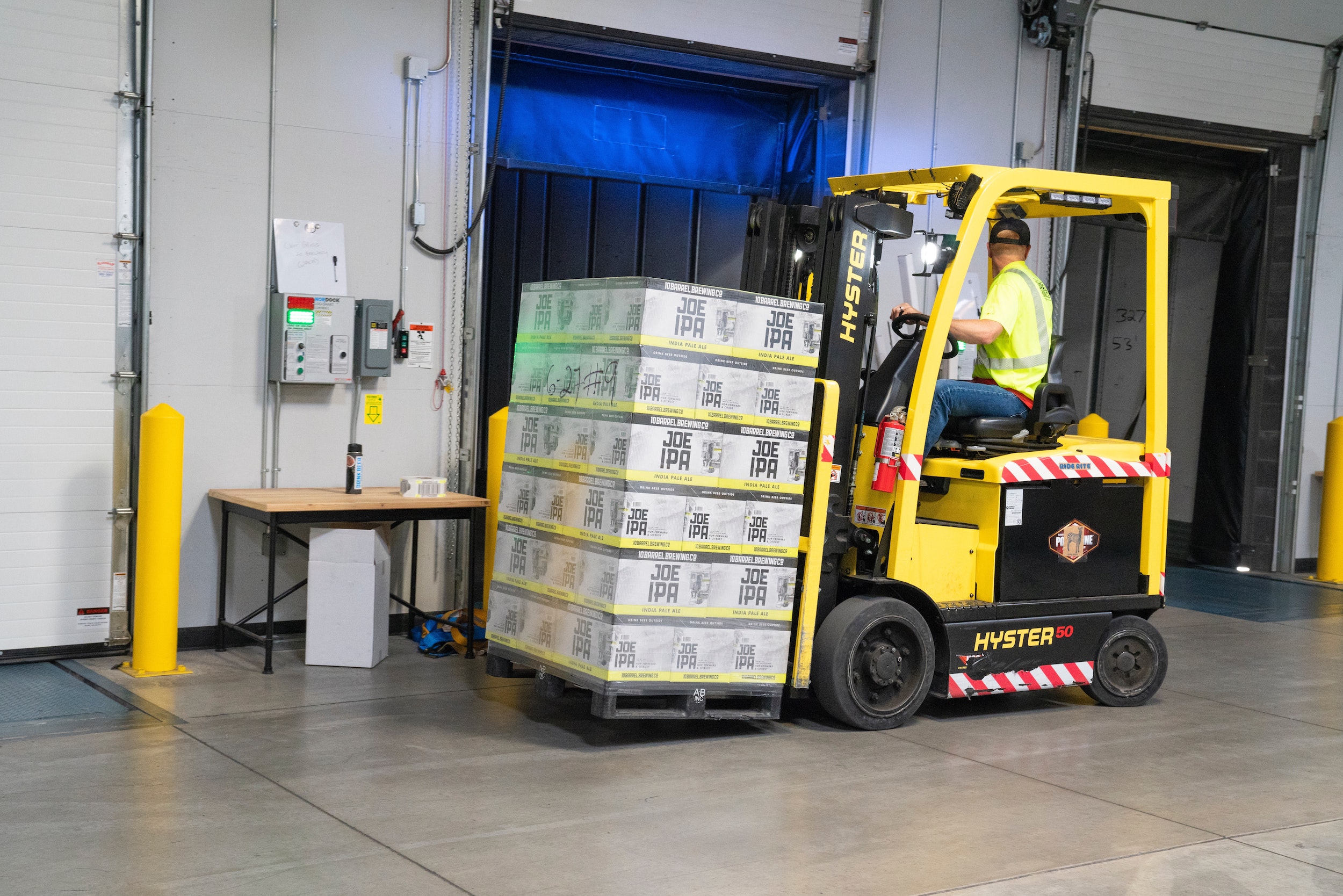Why you should consider a supply chain apprenticeship (and how to land the role)

With online shopping on the rise, there's a growing demand for warehousing and logistics professionals. Could this be the industry for you? Craig Powell, Managing Director of supply chain software specialists Balloon One shares why he thinks people should be considering an apprenticeship in logistics and warehousing.
The supply chain has changed rapidly in recent years. With the introduction of various technologies and automated systems, a digital skills gap has developed. And, in the next five years, 54% of logistics companies are expecting the industry's skills gap to increase even more (CILT).
This is because most workers in the industry have gained experience in more traditional skills but have little experience with these new automated systems. And, with fewer young people entering the sector, and more workers reaching retirement age, there's a rise in job vacancies throughout the industry.
Currently, the sector is looking for fresh talent with the skills to implement and manage new technologies, and they're working hard to attract younger people to their roles by developing apprenticeship schemes and engaging with schools and colleges. So, now is the best time to start looking for an apprenticeship in the supply chain industry. Below, I'll be going through the reasons you should consider pursuing a career in warehousing and logistics.
Your work can be varied
Almost everything we buy or consume needs to be processed through a warehouse and transported to us. But logistics is more than just moving things from one place to another. It's a fast-paced environment that relies on working as part of a large team to complete tasks safely and to tight deadlines.
By pursuing a career in the supply chain sector, you'll also have the opportunity to use computerised systems such as warehouse and supply chain management software to keep track of machinery and goods as they make their way through each stage.
Depending on where you work, you may also learn how to store and transport goods under a variety of conditions. For example, you may be transporting food under temperature-controlled conditions, or high security items to be assessed by customs. Or, you might be working to tight deadlines to pick and pack an item so it can be delivered to a customer on time.
You'll pick up a wide range of skills
The varied amount of work you'll carry out during your time as an apprentice means you'll pick up a wide range of transferrable skills. These can include:
- Planning and organisation
- Teamwork
- Leadership
- IT
- Specialised machine operation
- Picking and packing
- Health and safety
- Communication
There's plenty of opportunities

Whether you decide to work in retail, wholesale, construction or manufacturing, there are many career paths you can take once you've completed your apprenticeship. These can include:
- Supply chain design and planning
- Warehouse design and management
- Inventory management and control
- Distribution management
- Distribution network design and planning
- Freight transportation
- Purchasing manager
- Warehouse manager
- Administration and customer service
- Transport
So, no matter who you are or what kind of work you like to do, a supply chain apprenticeship can stand you in good stead for a successful future.
Because an apprenticeship requires little qualifications or experience, you really need to impress your potential employers at your interview. They'll want to see that you have passion and enthusiasm for the role, and that you're keen to learn everything you can about the industry. Tell them how you think the role will prepare you for your future. For example, do you have a specific job or sector in mind for once you've completed your apprenticeship?
Remember to ask questions about the role and the company to show your engagement. You might ask what a typical day's work could look like, or if there are any permanent positions on offer at the end of your apprenticeship.
Try to highlight any relevant experience that you've already picked up. For example, have you worked as a team on school projects or as a sports team? Have you held a leadership position in school or as part of a club? Make a list of the skills you might need for the role and anywhere you may have already developed them. You might be surprised by how many you've already got!
As the dynamic world of the logistics and supply chain industry suffers a nationwide skills gap, now might be the best time to look for an apprenticeship in the sector. Not only will you pick up a wide range of skills, but it can set you up for career progression when you finish.